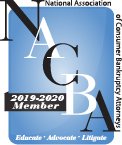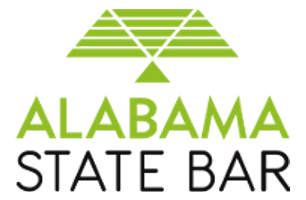Most homeowners who have a mortgage will be required by their mortgage company to have an escrow account.
Your monthly mortgage statement will break down your payments into principal, interest, and escrow.
What is a mortgage escrow account? Why is it necessary?
A mortgage escrow account is like a savings account. Depending upon the sort of mortgage you have on your home, it is likely a requirement of your loan documents.
An FHA loan, for example, requires an escrow account.
The escrow account ensures that your mortgage company’s collateral is protected. That collateral is your home. Your home will secure your obligation to make the mortgage payment every month with the threat of foreclosure, negative credit reporting, and possible other collection efforts.
If you don’t make your mortgage payment, the lender can foreclose and take possession of your home or sell your home to a buyer at a foreclosure sale.
However, your home is not worth much to the mortgage company if your home is sold for taxes, because you forgot to pay your property taxes. Your mortgage company would be in a bad spot if your home burns down and your homeowner’s insurance lapsed because you did not pay the insurance premiums.
The escrow account takes the responsibility for payment of insurance premiums and property taxes out of the homeowner-borrower’s hands to ensure that this does not happen.
How does the mortgage escrow account work?
Your mortgage servicer takes a portion of your monthly payment and places it into a separate account.
As your property taxes and homeowner’s insurance throughout the year become due, the servicer uses those funds to pay your property taxes or your insurance premiums.
If managed properly, the mortgage escrow account process provides security for everyone involved and makes maintenance of insurance and property tax obligations easy for the homeowner.
The escrow account is established when the home is purchased, or when the mortgage is refinanced.
At closing, the escrow account is funded by a portion of the closing proceeds so that the account is automatically funded for the first year of homeownership, even before any mortgage payments are made.
What law governs these accounts?
These accounts are governed by RESPA, the Real Estate Settlement and Procedures Act, and the loan documents.
RESPA sets forth procedures regarding the amount of money that must be in the account, the required minimum balance, how often the mortgage servicer must perform an escrow analysis, and how the escrow account analysis results are provided to the homeowner.
Typically, escrow accounts must be reviewed by your mortgage company once per year.
RESPA requires that when there is a surplus in your escrow account of $50.00 or more, the funds must be repaid to you, or you must be offered an option for refund. A surplus can occur when a homeowner has paid too much money into the account in a given year.
Secondly, if the account suffers a shortage, your mortgage payment must increase for the following year. This can occur when your taxes or insurance premiums increase.
Much litigation has occurred over the mortgage servicers’ calculation of escrow account balances.
Escrow accounts become further complicated when the homeowner files a Chapter 13 bankruptcy.
When a Chapter 13 bankruptcy is filed, the mortgage may be paid through a Chapter 13 payment plan, or it may continue to be paid directly by the debtor-homeowner, depending on the specifics of his or her Chapter 13 proceeding.
In either case, when this occurs, not only RESPA but the U.S. Bankruptcy Code, the Federal Rules of Bankruptcy Procedure, Local Bankruptcy Court Rules and other Federal and State laws will govern the mortgage balance, mortgage payment, the mortgage escrow account, and the reporting requirements for all of these things.
In other words, escrow accounting becomes even more complicated.
When the Chapter 13 bankruptcy ends and the servicing of the mortgage is transferred from one servicing entity to another, it gets worse.
Stay tuned for an upcoming post that will discuss some of the further issues that result in these cases.
If you’re an Alabama resident and are encountering problems with your mortgage or escrow accounts, contact us to schedule an initial consultation.





